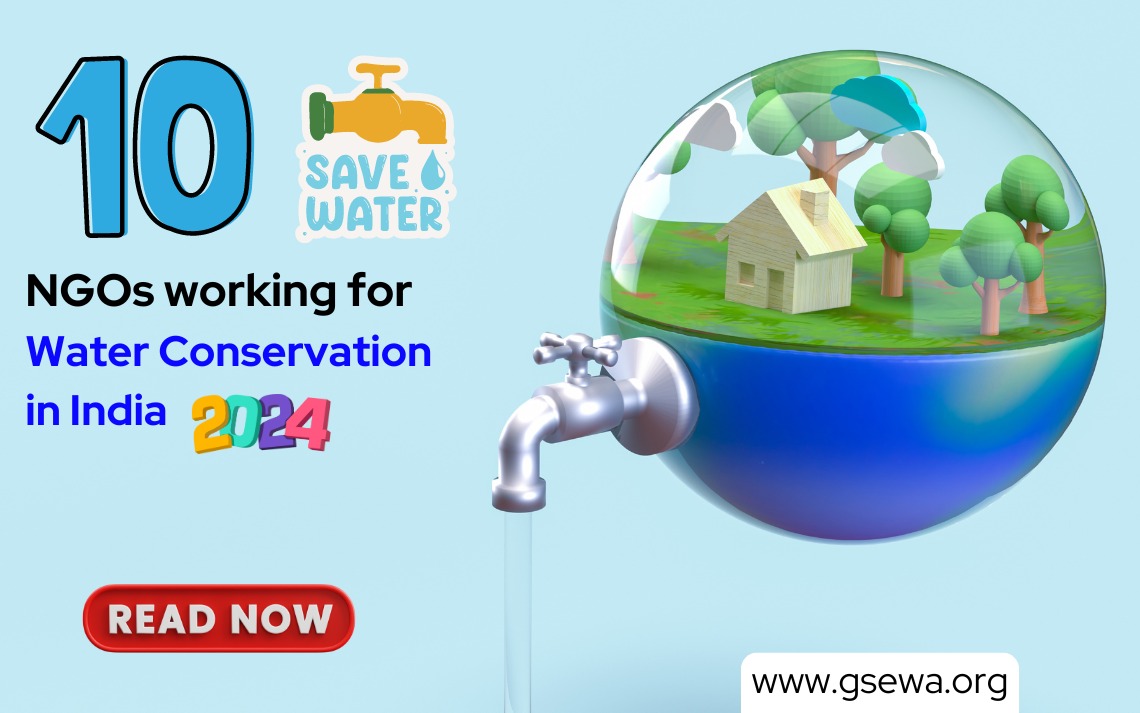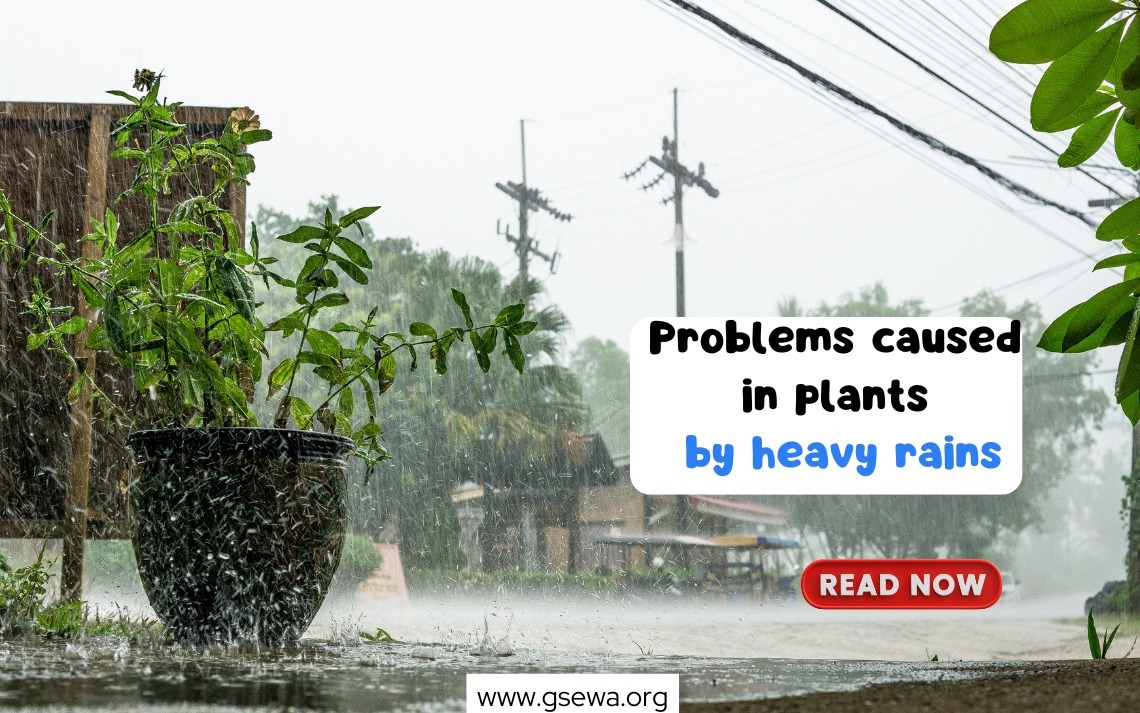
10 NGOs working for water conservation in India 2024
Table of Contents
- 1. Tarun Bharat Sangh
- 2. G-Sewa | NGO for Water Conversation
- 3. Environmentalist Foundation of India
- 4. Jal Bhagirathi Foundation
- 5. SARA (Sustainable Alternatives for Rural Accord)
- 6. Sehgal Foundation
- 7. Centre for Aquatic Livelihood Jaljeevika
- 8. Watershed Organisation Trust (WOTR)
- 9. Self Reliant Initiatives through Joint Action (SRIJAN)
- 10. Sankalpa Rural Development Society
Water on our planet is limited and unevenly distributed. When we talk about water conservation, the issue is not just about “saving” water, but having enough water to meet our present and future needs. For centuries, humans have exploited water resources, and many fear that future wars could be fought over water. A 2018 study by the European Commission’s Joint Research Centre (JRC) stated that scarce resources like water could lead to wars in the future.
It is crucial to use water judiciously and make increased efforts to conserve water to prevent water shortages from causing social unrest or conflict. The government in India has implemented various measures for water conservation, such as promoting underground water recharging, rainwater harvesting, constructing check dams, and other initiatives. Nonprofit organizations are also playing a significant role in promoting water conservation by collaborating with stakeholders. While India may not currently be a water-deficit country, without proper water conservation efforts, it could become one.
The Earth has a vast amount of water, estimated at around 326 million trillion gallons (equivalent to roughly 1,260,000,000,000,000,000,000 liters). This water is in a constant cycle: it evaporates from the ocean, travels through the air, falls as rain on the land, and then returns to the sea. In this article, we’ll explore the world’s water, including the amount of natural and salt water on the Blue Planet.
Here, we look at the top 10 Indian NGOs that are promoting sustainable water conservation practices and impacting lives:
1. Tarun Bharat Sangh

The primary focus of Tarun Bharat Sangh is to build self-reliant communities that coexist in harmony with nature. The organization actively engages the community in all stages of development work, primarily focusing on water conservation in Rajasthan, which is one of the most water-deficient states in the country.
Dr. Rajendra Singh, also known as the Waterman of India, is the founder of Tarun Bharat Sangh (TBS). This organization has successfully rejuvenated 10 rivers and transformed 10,000 square kilometers of drought-prone areas. Through his efforts, Dr. Singh has turned drought-affected regions in Rajasthan into thriving ecosystems. TBS implements traditional water harvesting techniques and encourages community involvement.
Dr. Singh’s remarkable work has earned him the prestigious Ramon Magsaysay Award for community leadership, as well as the Stockholm Water Prize, often referred to as the Nobel Prize in Water. In 2008, he was recognized by The Guardian as one of the ’50 People Who Can Save the Earth’. If you’d like to support Tarun Bharat Sangh, you can make a donation here.
2. G-Sewa | NGO for Water Conversation

Water conservation is a critical issue facing our planet today, and the efforts of NGOs play a vital role in addressing this challenge. Among the myriad organizations dedicated to this cause, one stands out as a beacon of hope and change: G SEWA. With a steadfast commitment to preserving our planet’s most precious resource, this NGO is making waves in water conservation efforts like never before, becoming the best NGO for water conservation.
By addressing the critical issue of water scarcity, G-Sewa is making significant strides toward a more sustainable Uttar Pradesh. This NGO’s remarkable projects range from rainwater harvesting to educating local communities on efficient water usage. See how these initiatives are transforming lives and learn ways you can contribute.
3. Environmentalist Foundation of India

The Environmentalist Foundation of India is a water conservation NGO with a holistic approach that includes wildlife conservation and habitat restoration. The organization primarily focuses on reviving freshwater habitats, such as lakes and ponds, across the country.
After conducting several studies, the Environmentalist Foundation of India (EFI) has concluded that the revival of contaminated freshwater bodies in India can only be achieved through scientific means. Since its inception in 2007, EFI has successfully revived several freshwater lakes and ponds in India. While the organization has worked in several urban areas, it also extends its efforts to rural hinterlands.
Some of the water conservation efforts of this NGO include the restoration of the Kinhi-Gadegaon Reservoir in Maharashtra, Tirunelveli-Keezh Ambur Lake in Tamil Nadu, Navule Kere in Shivamogga, Karnataka, and other locations.
4. Jal Bhagirathi Foundation

“This water conservation NGO in India operates in one of the most densely populated arid zones in the world – the Marwar region of Rajasthan. The Jal Bhagirathi Foundation has been addressing the challenge of water scarcity in the region for decades. It is involved in the revival and construction of rainwater harvesting structures to recharge groundwater. The foundation also assists local communities in constructing rainwater harvesting tanks, known as “tankas”. Experts believe that building tankas is beneficial for the region and is considered to be the most replicable water conservation solution.”
The organization’s “Community Led Water Management System” is implemented through local associations called Jal Sabhas. Since women are crucial for water conservation, the NGO encourages women to participate in these Jal Sabhas.
5. SARA (Sustainable Alternatives for Rural Accord)

SARA and its associated organizations have been working on the ground at various levels to understand and implement sustainable models under its ‘Swagrama’ program. Inspired by Mahatma Gandhi’s dream project ‘Village Swaraj,’ the ‘Swagrama’ project aims to achieve self-sustainable rural development.
Water conservation is a crucial part of the program. SARA is revitalizing ten lakes in four panchayats in Karnataka’s Shivamogga district. Most of these lakes were filled with silt and lost their capacity to recharge and irrigate the cultivable land. With increased water storage capacity and desilting, the lakes can now hold water throughout the summer months, benefiting the surrounding villages. Groundwater recharging is helping to retain soil moisture and support crop growth.
6. Sehgal Foundation

The SM Sehgal Foundation has been working in the field of water conservation for nearly 24 years. Its main focus is on community-led development initiatives aimed at bringing about social, economic, and environmental changes across the country. Given the pressing issue of water conservation, the Sehgal Foundation primarily operates in semi-arid regions of Haryana and Rajasthan, as well as in Bihar. However, the foundation has also expanded its work to other areas in recent years.
Sehgal Foundation collaborates with communities to build and restore infrastructure in villages, aiming to harvest and store rainwater. It also focuses on reviving traditional water bodies, constructing water storage dams, and raising awareness about water conservation. The organization works with partners to continuously improve and replicate low-cost water management and conservation methods. This water conservation NGO in India has received numerous awards for its rural water management from the Government of India and other organizations.
7. Centre for Aquatic Livelihood Jaljeevika

Jaljeevika has played a vital role in water conservation and supporting fish farmers in states such as Andhra Pradesh, Madhya Pradesh, Maharashtra, and Jharkhand. It educates them on sustainable fishing methods while also emphasizing water conservation. Fishery cooperatives have been encouraged to embrace new technologies and improve management practices to enhance their livelihoods.
The organization has implemented livelihood models to double farmers’ income and enhance productivity. Better management of existing water resources through sustainable practices is a focus. Thousands of small and marginal farmers have benefited from the organization’s on-the-ground work.
8. Watershed Organisation Trust (WOTR)

This NGO in India has been dedicated to comprehensive rural development for many years. Its efforts encompass water management, agricultural development, climate change adaptation, and more.
WOTR believes that over the years, unsustainable land and water management have had a detrimental impact on the ecosystem in rural India. This has resulted in deforestation, intense agriculture, overgrazing, and excessive extraction of groundwater. These factors pose a threat to agriculture, leading to distress migration, loss of biodiversity, and decline in ecosystem services. As part of its water conservation initiative, WOTR has facilitated various projects including the construction of check dams and water harvesting structures to improve access to drinking water and sanitation facilities.
9. Self Reliant Initiatives through Joint Action (SRIJAN)

“As a grassroots organization, SRIJAN has improved the incomes of tens of thousands of rural families in the backward districts of Madhya Pradesh, Rajasthan, Chhattisgarh, and Uttar Pradesh. One of its most important water conservation projects is the Bundelkhand Initiative for Water Agriculture and Livelihood (BIWAL). It is an attempt to revive traditional water bodies and the surrounding ecosystems through community engagement. Over the years, the tanks in the region have fallen into disuse because of droughts, neglect, and apathy.”
According to SRIJAN, a large number of tanks in Bundelkhand are silted, encroached upon, or are being used for purposes other than water harvesting. SRIJAN has launched initiatives for water harvesting and conservation, involving the local community in various methods. This effort has multiple benefits, including the positive impact on the local communities associated with the tanks.
10. Sankalpa Rural Development Society

This water conservation NGO in India has been promoting rainwater harvesting techniques, including bore well recharge and rooftop rainwater harvesting, for over a decade now. It was founded by Sikandar Meeranaik, an entrepreneur specializing in modern-day rainwater harvesting. SRDS believes that by following its water harvesting methods, India could alleviate water scarcity.
The organization’s direct borewell recharge technique combines traditional rainwater harvesting methods with innovative practices to replenish groundwater tables and aquifers with naturally filtered rainwater. Borewells recharged using this technique have shown increased water levels. Additionally, rooftop water harvesting is an inspiring method employed by this NGO to encourage water conservation. The harvested water can be utilized for drinking, household needs, agriculture, and for recharging borewells and groundwater levels.



